Nicki

Nicki’s life has been defined by caring for others.
She is a registered nurse by profession and is now the Operations Manager for Community Mental Health and Addiction Services at the Waikato District Health Board. She has several teams working under her, including adult mental health and specialty services that focus on eating disorders and mental health services for older people
“There is an awful lot of distress out there. Many people are isolated by Covid and it’s having a massive impact on mental health in older people and in the young. The demand for our services is growing.”
It’s been a busy couple of years for Nicki working as the DHB negotiated its way through the ransomware attack in May, and the significant and long-lasting implications of the COVID pandemic. Delta made it across the Auckland border, and the virus is now embedding itself in the Waikato.
“It’s been incredibly tough trying to keep all of the important services available to the people who need them. It’s been busy, really busy.”
For the better part of the past three years, Nicki has also been fighting cancer. She has Triple Negative breast cancer, so called because it produces three negative results when it’s tested for three indicators of the other, more mainstream breast cancers.

It is the most aggressive form of the disease, and it has the worst outcomes. Every cancer diagnosis is brutally confronting, but Triple Negative is a fast-growing cancer, and it is more likely to have spread by the time it is found.
Nicki’s voice breaks when she talks about living with such a challenging diagnosis.
“I’m sorry. I get a bit emotional. I live with this every day. It really moves me to think that people might want to hear and understand my reality.”
In February 2019, Nicki was holidaying in Hawaii with her husband, Alan. It was the 46-year old’s first trip to the northern hemisphere with the man she always describes as “my rock”.
Tragically for Nicki, it is also where she first discovered she had a lump. Once she was back in New Zealand, she saw her GP who sent her for an ultrasound.
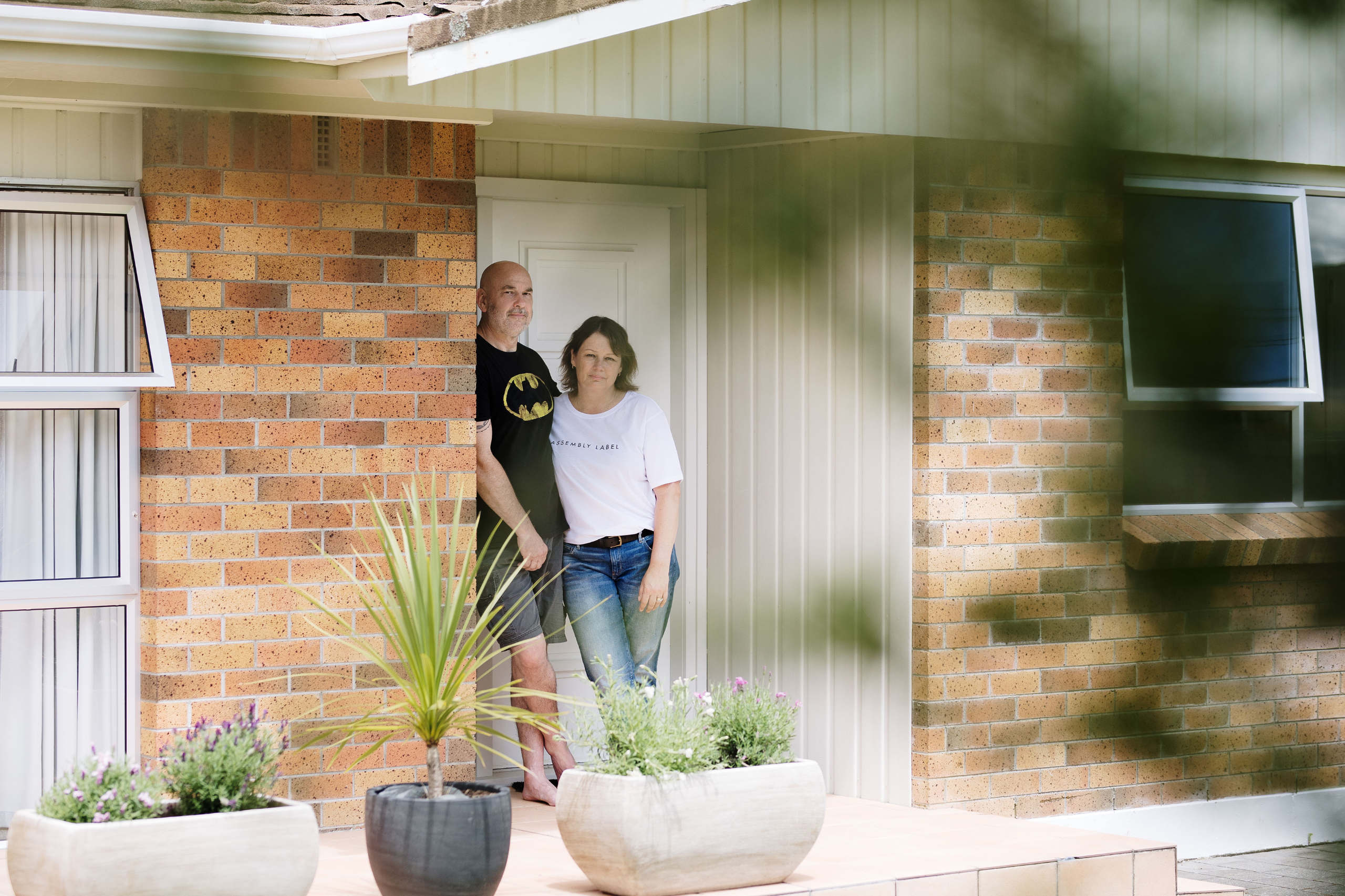
“As soon as I saw the sonographer’s face, I knew I was in trouble. She rushed off and got the radiographer.”
Nicki was initially diagnosed with the most common form of breast cancer and says it was “a bit of a bumpy road” in the weeks ahead, fraught with MRI’s, CT scans and biopsies which picked up “a few issues”.
Nicki needed two biopsies, one in her bone and the other in her lung. She was conscious for both.
“They said it would be traumatic and it was. I have never experienced a trauma like it.”
“The nurse stood beside me and held my hand, and I am so grateful to her. They can anaesthetise superficially but they can’t numb your lung so it was just an incredibly traumatic and painful process.”
Even worse, Nicki’s lung began to collapse so the procedure was stopped and a second lung biopsy was rescheduled.
“It was no-one’s fault, it was just a very, very difficult procedure, but the care I received, and the recognition of my fear and trauma was amazing.”

Nicki had two large tumours in her left breast and several lymph nodes were affected too. It was hoped that several rounds of chemotherapy would shrink the tumours ahead of surgery, but that didn’t happen. The tumours stubbornly retained their size, so the chemotherapy stopped and the surgeon performed a mastectomy and removed the lymph nodes.
Tragically, follow up scans revealed spots on Nicki’s liver. More biopsies followed.
At this time, Nicki still thought she had one of the less aggressive forms of breast cancer until she met with her surgeon.
“He’s a very skilled man, a wonderful surgeon, I was so lucky to have him.”
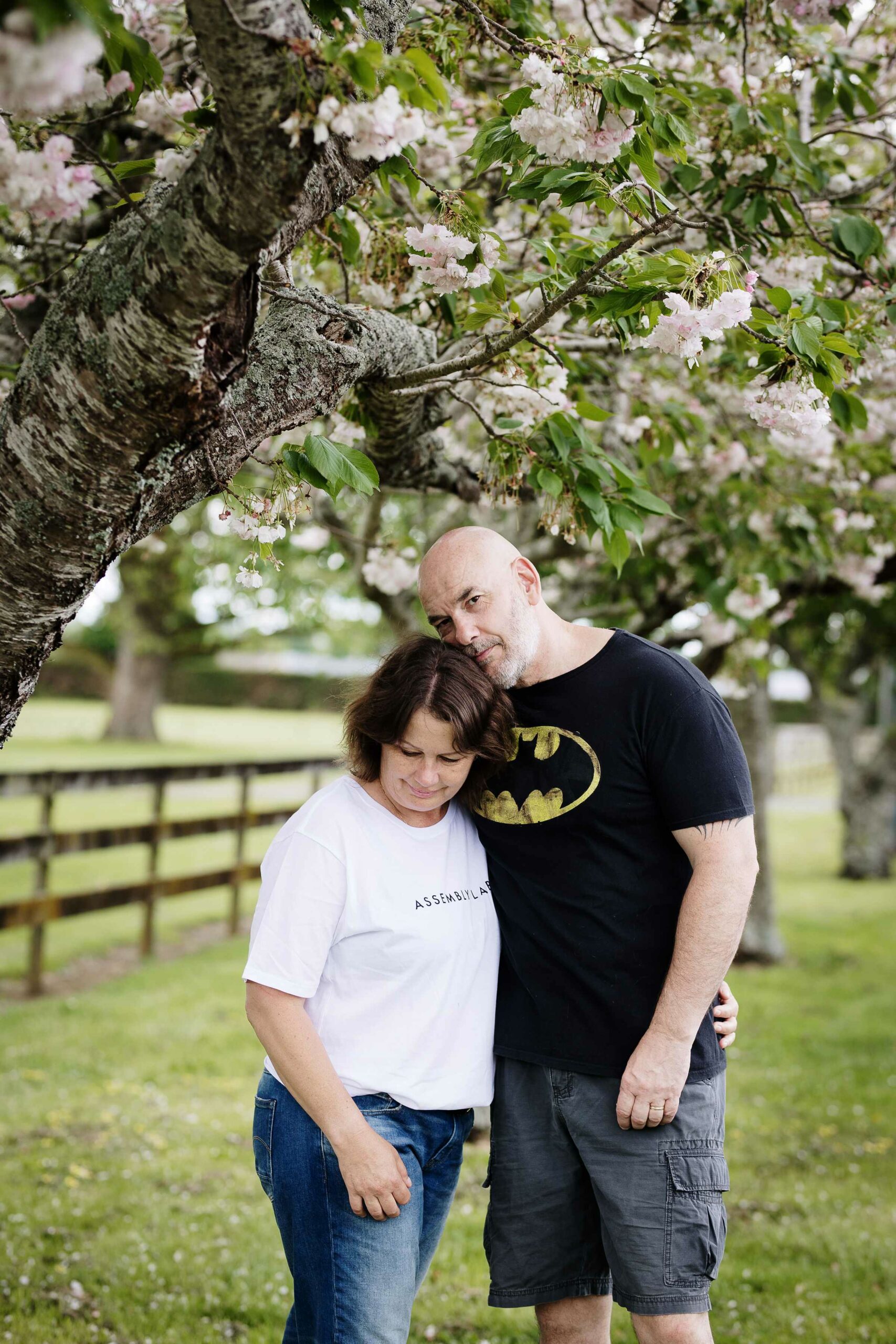
However, that consultation changed the course of Nicki’s life. Sometimes cancers change form, and the surgeon told Nicki she no longer had the form of breast cancer they first thought. A subsequent liver biopsy had revealed the breast cancer had morphed into Triple Negative. It had become much more aggressive.
I said “am I going to beat this?”
Nicki’s voice cracks with emotion when she remembers the moment he gave her a terminal prognosis.
The days that immediately followed are a blur, but Nicki’s oncologist, Marion Kuper-Hommel, “one of the most exceptional women I have ever met” encouraged Nicki to get her affairs in order, but she also said there were treatments available that could extend her life and give her more time with her family.
“I said throw it at me, I’ve got too much to live for, I want to fight this.”
Nicki’s treatment plan combined chemotherapy with an immunotherapy called Tecentriq.
Immunotherapies are drugs that help your immune system fight cancer by either activating your immune system, or suppressing it. Medsafe has approved Tecentriq for use in New Zealand, but it’s not funded by Pharmac. If Nicki wanted the drug, she would have to pay for it herself.

The drug’s developer, Roche, like many pharmaceutical companies, operate ‘Cost Share’ programmes for New Zealanders. The cost of the drug is capped, and once the cap is reached, the drug is typically provided indefinitely at no further cost to the patient.
Nicki and Alan would need $45,000 plus a further $6,750 in GST to access Tecentriq. It’s not lost on the couple that the Government clips the ticket on the way through, applying GST to a modern medicine it doesn’t fund.
Nicki didn’t know how she was going to fund the medicine, but then remembered she had some money in Australia. For a time, Nicki had worked in Queensland’s health system and because of her terminal diagnosis, she could access her Australian super early. It was a small sum, but it was enough to cover her Tecentriq.
“I don’t know what we would have done if I didn’t have that money in Australia. I’m not sure I’d be here.”
Every three weeks, Nicki and Alan would have to pay almost $5000 for the drug until they hit the $51,750 cap, and then find another $1500 to have it administered at a private hospital. Our health system won’t administer treatments to patients who are self-funding. The costs just kept mounting.
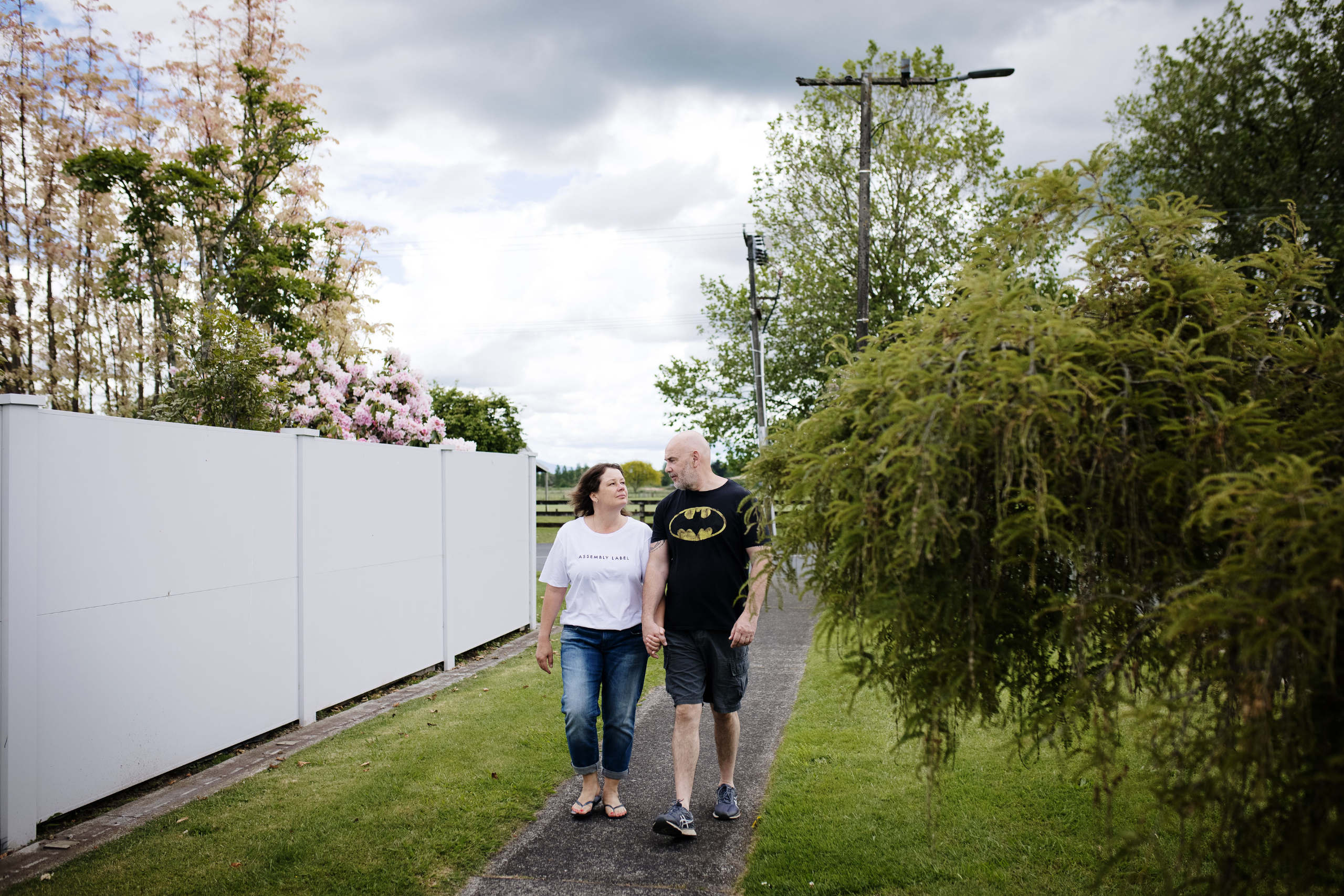
Part way through Nicki’s treatment, help came from the unlikeliest of places. The Ngaruawahia Annual Charity Golf Day stepped in to help, picking up the tab for Nicki’s three-weekly administration fee for almost a year. Every year, the Charity Golf Day supports one or two people who need financial assistance to access medications that are not publicly funded in New Zealand.
“I feel so incredibly grateful to the organisers and all who participated and gave so generously. They give people like me such a gift. They free us up to live our lives, and to make some memories with the people we love.”
Nicki says New Zealand’s lack of access to modern medicines places an enormous burden on people when they are at a very vulnerable time in their lives. Despite her illness, Nicki continues to work in the health system, supporting others to give patients the best possible care they can.
“Many New Zealanders are struggling with life-changing illnesses, but we’re still productive and we’re still contributing to the economy. I’ve worked hard all of my life and I’ve paid my taxes and helped others. Now that I need help, why is it only available at such significant cost?”

Triple Negative breast cancer is the forgotten breast cancer. New Zealand doesn’t fund an immunotherapy drug to treat the disease, or provide any treatment beyond chemotherapy or radiation.
Some early stage Triple Negative breast cancer responds to Keytruda, another breakthrough drug, but it’s also unfunded. If you live in New Zealand and you have Triple Negative breast cancer, you will mostly likely have to self-fund your treatment. Of course, that’s if you can afford it.
“I don’t understand, in a country like New Zealand, how we have so little access to these important medicines that are routinely funded around the world.”

Nicki’s greatest concern is for Alan. Financially, it’s a big cross to bear and she is terrified of exhausting their finances and leaving him with very little.
“I am optimistic, you have to be, but it is financially challenging. If I was still in Australia, all of my treatment would largely be free.”
Nicki’s emotions bubble over again.
“People are worth it. We are all worth it.”
“You have to invest in the health of your society. This is deeply personal for me. I work in a system that is so incredibly underfunded. The people who work in the system are amazing. They are truly incredible. This is just a funding issue.”
Nicki says she is focused on keeping her head in the right space to fight this disease, but she is urging the Government to support women like her, and provide modern, First World treatments that will help people live.
“Don’t give up on us. We are too young to give up on.”
Ironically, Nicki will get up tomorrow and go to work at the Waikato DHB to ensure the community she serves gets access to the health care they need. It’s all she’s ever known.
Once a nurse, always a nurse. The caring never stops.

Show your support.
Please share Nicki’s story.
New Zealand needs access now to modern medicines to treat Breast Cancer Triple Negative.
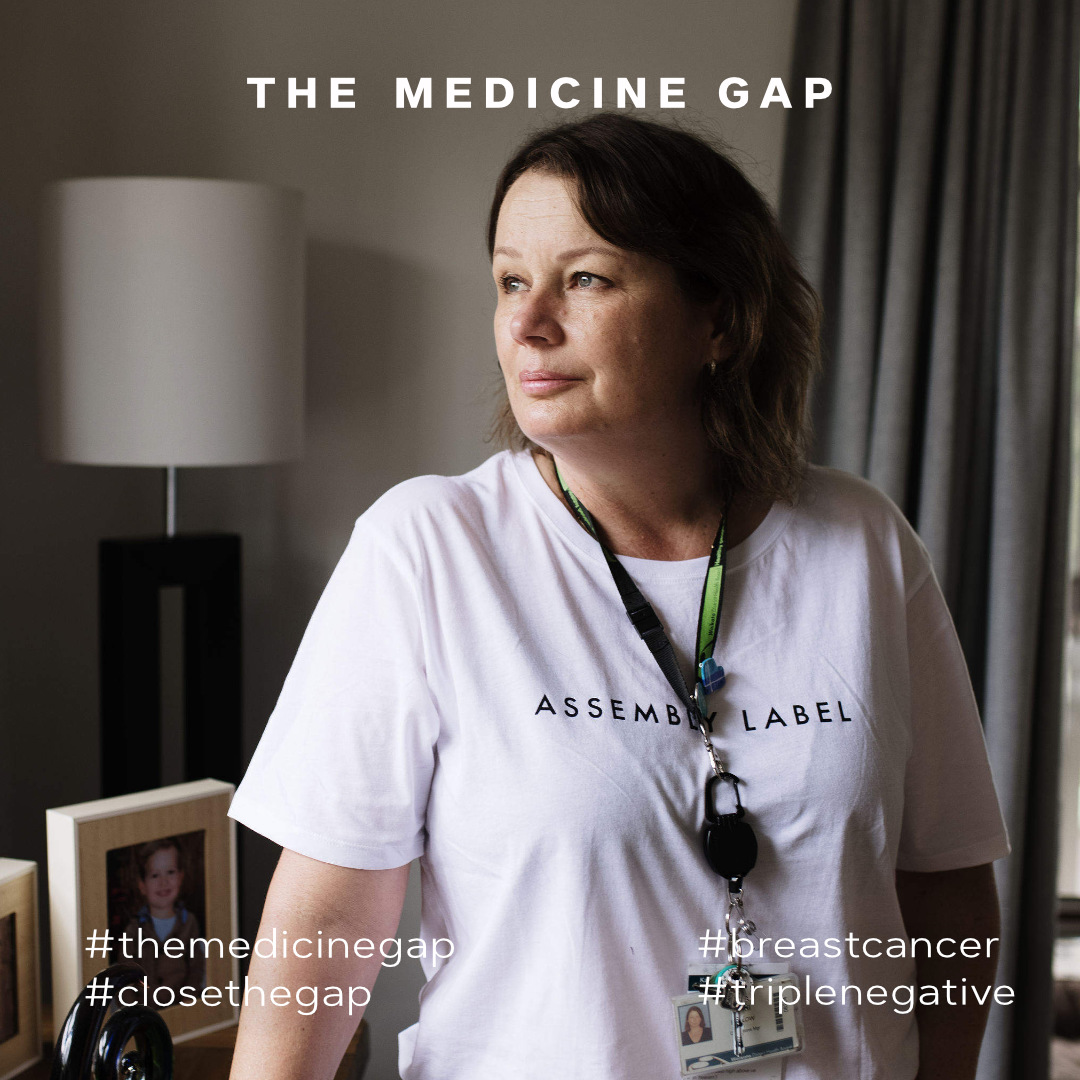
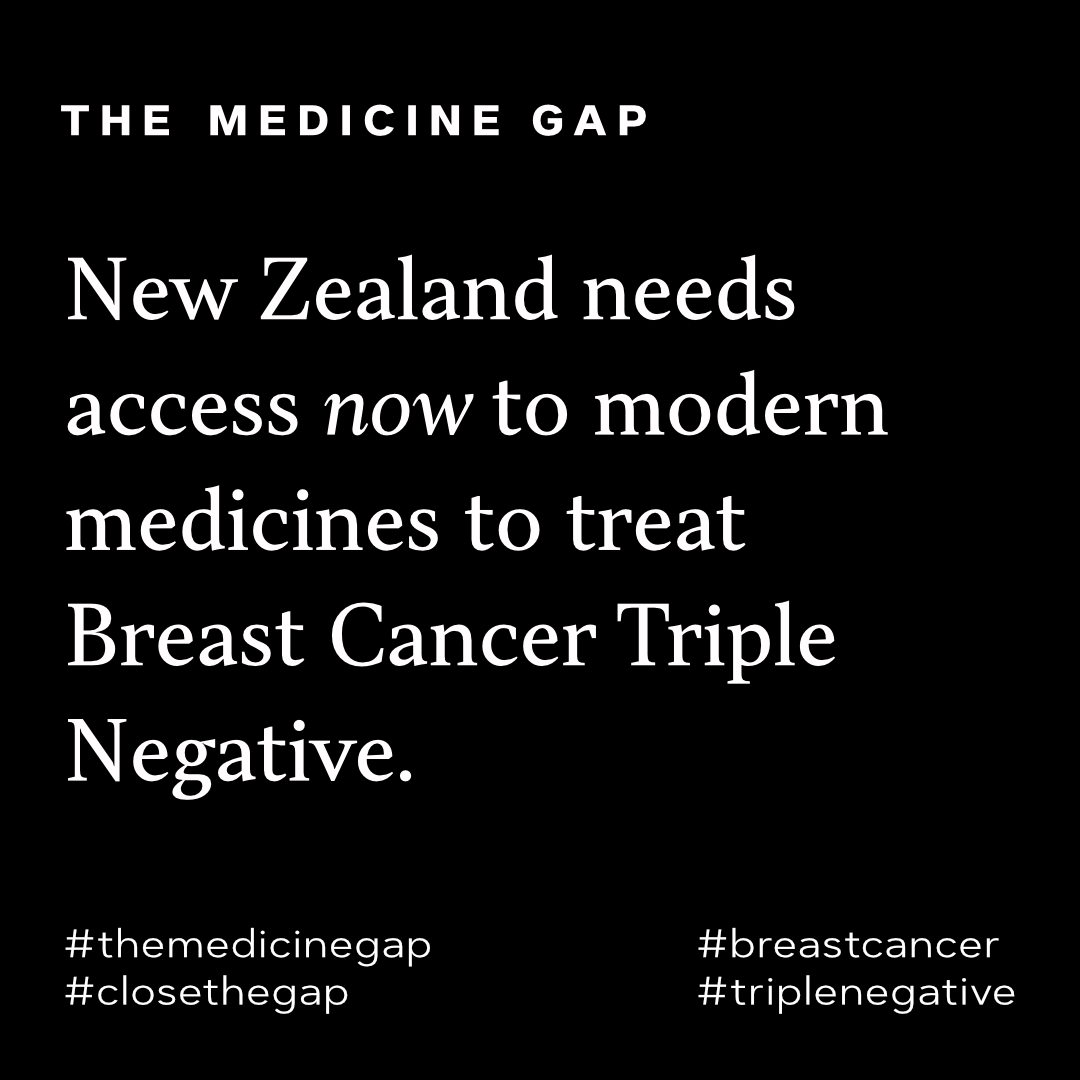

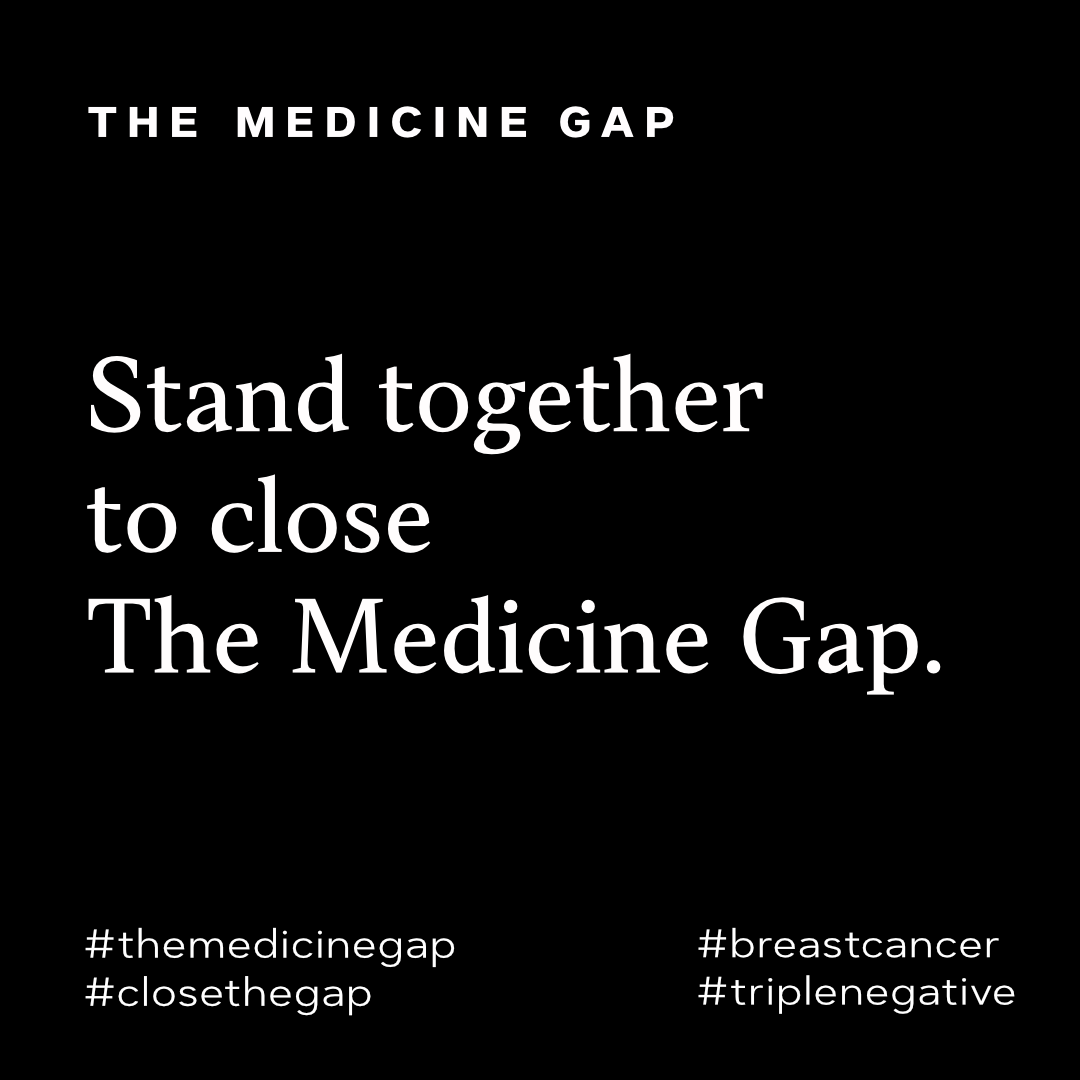
Related Stories
Let’s close the Gap
Get Involved1.
REFORM
PHARMAC
Achieve a measurable, political commitment to reform Pharmac and create a fit-for-purpose drug-buying agency that supports and enables greatly improved access to modern medicines – and ensure a direct line of political accountability.
2.
OVERHAUL THE FUNDING
METHODOLOGY
Introduce a globally accepted modern, cost-benefit analysis for medicines and medical devices which looks at the ‘value’ of a medicine, and considers the financial, economic, and social impact of untreated disease on our society.
3.
COMMIT TO AN OUTCOMES-BASED MEDICAL STRATEGY
Develop a Medicines Strategy to guide the decision-making process, create measurable targets to reduce Pharmac’s waiting list, and detail how the agency will respond to rapid developments in modern medicine to improve health outcomes for New Zealanders.